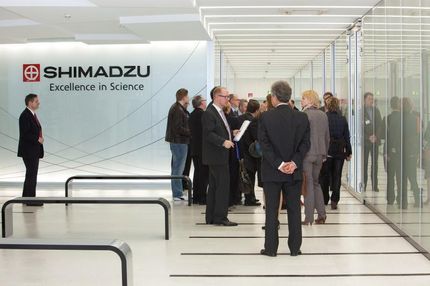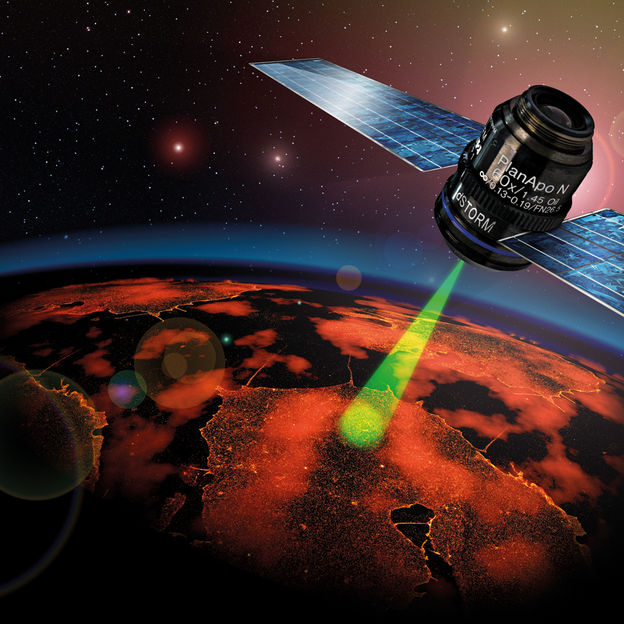Ultra fast 100 percent examination under the microscope
Large-scale components with tiny details often have to be examined under the microscope for quality control. The demand for microscopic test methods is particularly high in the semi-conductor and electronics industry due to the high degree of miniaturization. However, the recording process is very tedious when examining large objects microscopically, because thousands of individual photos must be taken and analyzed. Fraunhofer IPT is presenting a new recording process, with which large-scale objects can be examined under the microscope in a matter of seconds.
High-Speed-Microscopy for quality control
Traditional recording processes for large components with high magnification often take so long that 100 percent examinations cannot be performed due to a lack of time meaning that only random samples can be examined. After all, the number of photos and therefore the time required depend on the magnification used in microscopy: the large-scale component must be precisely positioned with the sample table before the individual photos can be produced and analyzed.
Fraunhofer IPT has now developed a new recording process, with which large-scale components can be examined under the microscope in just a few seconds: the table moves the object continually during the recording procedure, in contrast to the conventional “Stop-and-Go” operation. This allows the sample to be digitalized with very high image rates – with more than 100 frames per second depending on the camera. Due to the fact that the object is only exposed extremely briefly with a flash, the photo is also free of any motion blur. During the continuous scanning process, the focus is readjusted using real-time-capable hardware autofocus systems so that the sample is displayed with a sharp focus at all points.
High-performance data and image processing
The time-optimized scanning process is combined with real-time-capable data handling and image preprocessing stages. Even intensive computing steps such as stitching processes run almost without delay thanks to GPU support. Automated image processing work for quality control can already be carried out parallel to the scan, so that the results of the examination process are available immediately after the high-speed scanning process. This new system is the first to allow a successful 100 percent microscopic examination that can keep up with the rapid speed of industrial production.
Most read news
Topics
Organizations

Get the analytics and lab tech industry in your inbox
By submitting this form you agree that LUMITOS AG will send you the newsletter(s) selected above by email. Your data will not be passed on to third parties. Your data will be stored and processed in accordance with our data protection regulations. LUMITOS may contact you by email for the purpose of advertising or market and opinion surveys. You can revoke your consent at any time without giving reasons to LUMITOS AG, Ernst-Augustin-Str. 2, 12489 Berlin, Germany or by e-mail at revoke@lumitos.com with effect for the future. In addition, each email contains a link to unsubscribe from the corresponding newsletter.
























































